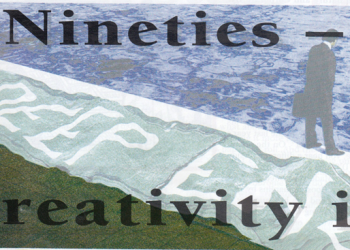he German Cultural Institute in Colombo in association with the Lanka International Forum on Environment and Sustainable Development (LIFE), jointly organized a seminar on the theme ‘Sustainable Development – Greening on National Accounts’, in December 1996.
In recent times, alternate methods of national accounting have been discussed by researchers, economists and environmentalists which appear to have relevance for macro-economic policies as well as for im- proving economic cooperation between countries of the industrialized and the developing world. Therefore, the rationale for this seminar was that it could help address some key issues pertaining to new views on economic growth and national accounting systems. It was an event that brought together some of the leading environmental economists and decision makers of Sri Lanka and a group of selected experts from Germany and Pakistan, to discuss methodological and practical questions with special relevance to the Sri Lankan situation and to review the current status of Green Accounting.
Explaining what Green Accounting is, the President of LIFE Prof. Mohan Munasinghe says, “it’s basically a method of making sure that the development programmed of the country does not lead to degradation of the environment in the long term. Although you may have very high growth rates for a time, if you degrade your environmental assets, then in the long term your growth rate will fall. So, Green Accounting is a method of keeping track of what you’re doing to the environment while you’re growing. By doing so and by protecting the environment as you grow, you have what you call sustainable development; that is development which is not only for today but can be sustained indefinitely into the future as well.”
In recent decades, environmentalists and economists have been questioning as to why natural resources such as trees and animals are not considered in the computation of national products and incomes. The answer to this is that conventional measures of output like the Gross Domestic Product (GDP) are based mainly on the value of manufactured and marketed goods and services. Therefore, such measures don’t adequately capture the value of natural resources and may give a misleading picture of the state of development.
“Many of us while studying eco- nomics were surprised if not confused when learning what is adding value and what is not, especially when it comes to the natural environment. Overexploiting and poisoning of the soil and water, and emitting pollutants into the air do not (directly) affect GDP; mining or deforestation add value rather than do renaturation or afforestation. Attitudes are changing however and the necessity to include environmental aspects into the national accounts is generally accepted now”, says Wolfgang Peter Zinged, an economist at the South Asia Institute of Heidelberg University, Germany.
GDP and related economic indicators are derived from the System of National Accounts (SNA) which seek to measure economic performance. Making such measures more accurate will help national policymakers design im- proved economic policies. If environmental effects such as pollution and depletion of natural resources are not well reflected in the SNA, decisionmakers may not see the correct picture of the state of national development. There are those countries which have achieved phenomenal GDP growth.



